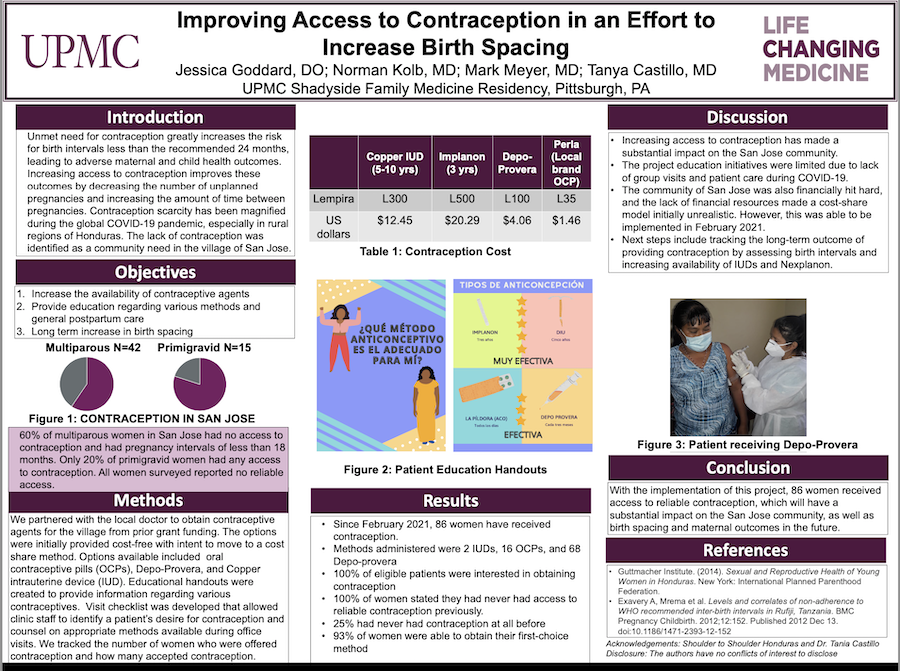Family Practice Physician, St. Clair Health Dunlap Family Outpatient Center, Pittsburgh, Pennsylvania
Title: Improving Access to Contraception in an Effort to Increase Birth Spacing
Authors: Jessica Goddard, DO; Norman Kolb, MD; Mark Meyer, MD; Tanya Castillo, MD
Background:
Adverse maternal/child health outcomes of poorly spaced pregnancies have been documented worldwide. Unmet needs for contraception greatly increase the risk for birth intervals less than the recommended 24 months. Increasing access to contraception improves maternal/child health outcomes by decreasing the number of unplanned pregnancies and increasing spacing between pregnancies. Contraception scarcity has been magnified during the global COVID-19 pandemic, especially in rural regions of Honduras. The lack of contraception was identified as a community need in the village of San Jose. All multiparous women surveyed in San Jose had no access to contraception and 60% of those had pregnancy intervals of less than 18 months.
Methods:
We partnered with the local doctor to obtain contraceptives for women using prior grant funding. The options were initially provided cost-free with intent to move to a cost share method. Options included oral contraceptive pills (OCPs), Depo-Provera, and Copper intrauterine device (IUD). Educational handouts were created to provide information regarding various contraceptives. We developed a visit checklist that allowed clinic staff to identify a patient’s desire for contraception and counsel on appropriate methods available during office visits. We tracked the number of women who were offered contraception and how many accepted contraception.
Results:
Since February 2021, 86 women have received contraception. Methods administered were 2 IUDs, 16 OCPs, and 68 Depo-Provera. All of these women previously never had access to reliable contraception.
Discussion:
This project provided more reliable access to contraception for over 80 women of San Jose. Limitations include limited education and supply issues with the pandemic, as well as delay in cost share implementation.
Conclusion:
With the implementation of this project, 86 women received access to reliable contraception, which will have a substantial impact on the San Jose community, as well as birth spacing and maternal outcomes in the future.

